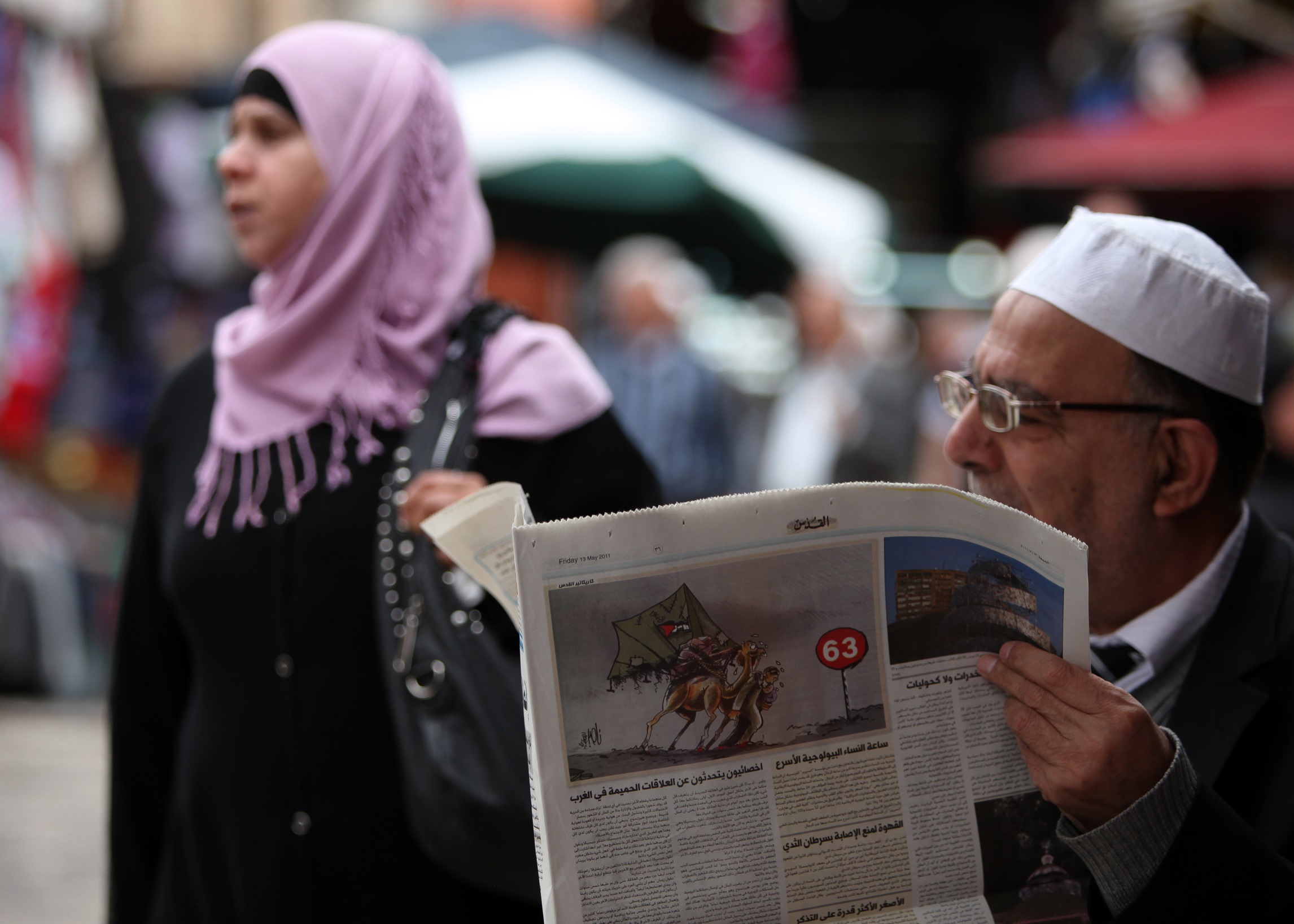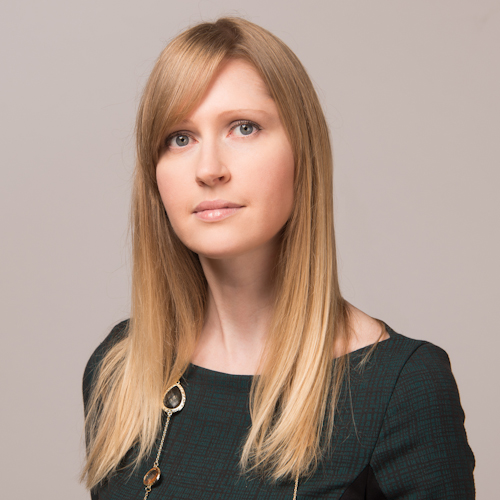This article was originally written in Arabic and translated into English using AI tools, followed by editorial revisions to ensure clarity and accuracy.
The impact of U.S. President Donald Trump's decision to halt foreign funding through the U.S. Agency for International Development (USAID) on Arab media platforms has largely gone undiscussed. Some of these platforms have consistently labelled themselves as "independent" despite being Western-funded.
This article examines the reasons behind the failure of economic models for Western-funded institutions in the Arab world and explores the extent of their editorial independence.
It is clear that U.S. President Donald Trump's decision to halt foreign funding through the U.S. Agency for International Development (USAID) has caused significant turmoil. It is no exaggeration to say that many media institutions are now in emergency mode due to the impact of this decision. According to the European Federation of Journalists, this measure will affect dozens of independent media platforms and institutions in more than 30 countries.
The Arab world is not immune to this chaos, although the extent of the impact and damage remains unclear. What further complicates the situation is that vast amounts of USAID data have been removed from the internet. However, a survey conducted by the Global Forum for Media Development indicated that between 2020 and 2024, USAID’s support for media and journalism development exceeded $5 million in the Levant and Iraq alone, with an additional $1.5 million from the U.S. Department of State for the same geographic and temporal scope.
Media development professionals can already sense the swift impact on projects directly and indirectly funded by the American agency. Major projects have experienced contract terminations, activity suspensions, and staff layoffs, which will increase pressure on a sector already struggling with previous challenges. This also raises the pressure on other funders who may be unwilling or unable to fill the financial gap left by this funding vacuum.
This is not the first shock, but it is certainly the strongest. It forces Western-funded media to take a hard look at itself and ask the pressing questions that were previously ignored or sidelined, particularly those related to sustainability. The successive shocks began in Germany in 2021 when Deutsche Welle suspended its cooperation with a Jordanian channel due to caricature content previously published by the channel. The situation escalated when Sweden decided to reduce its foreign development funding following the election victory of a right-wing government in the same year. The trend intensified into a widespread cessation of aid to many institutions after October 7, 2023, with new conditions imposed regarding political stances and opinions. This culminated in the new U.S. administration’s decision to freeze global development funding.
The successive shocks began in Germany in 2021 when Deutsche Welle suspended its cooperation with a Jordanian channel due to caricature content previously published by the channel.
It can be said that this trend is gaining significant momentum, and it does not seem likely to stop anytime soon, especially with the rise of right-wing forces in the West. These forces believe that Western societies have the right to benefit from these funds domestically rather than spending them abroad. This means that the currently available funding is not guaranteed for the future and cannot be relied upon for sustainability.
This raises a fundamental question about the term used to describe Western-funded media, which is often labeled as "independent." Independent of what, exactly? If Western funding is ultimately governmental and controlled by official decisions and institutions, and if accessing this funding comes with conditions that affect the editorial standards of journalistic content, then what does the term "independence" truly signify in this context?
To frame the discussion appropriately, my perspective is neither conspiratorial nor an attack in the style of Elon Musk against any media institutions that enrich the media landscape or against the valuable journalistic work they produce. Instead, this is merely an objective and critical discussion without bias. I have personally worked for a Western-funded media institution for many years and have also collaborated with many others.
USAID's support for media began in the 1980s and expanded significantly after the collapse of the Soviet Union, reaching Eastern Europe, Asia, and Latin America. In the Arab world, this support started early in cooperation with both governmental and non-governmental media institutions. Despite this, USAID's published data and policies consistently claim that its support aimed to achieve media sustainability, although it did not achieve the desired level of sustainability.
Some experiences have shown that certain Western-funded institutions suffer from noticeable budget inflation in specific areas compared to other media organizations. For example, the salaries of administrators at institutions with limited reach, impact, or a community focus sometimes exceed the salaries of government officials responsible for entire media sectors. Even the wages of lower-level employees are higher than those of their counterparts in similar positions within governmental or private institutions.
Some experiences have shown that certain Western-funded institutions suffer from noticeable budget inflation in specific areas compared to other media organizations. For example, the salaries of administrators at institutions with limited reach, impact, or a community focus sometimes exceed the salaries of government officials responsible for entire media sectors.
These inflated salaries did not benefit the broader funded media sector, especially as media institutions began to rely on a freelance model. This shift saved significant costs on offices, staff, and labor responsibilities, concentrating financial liquidity in the hands of a very small group of employees. These individuals are the ones responsible for explaining why the current situation persists and why the transition to sustainable media models—despite opportunities to adopt a balanced economic approach—has failed.
Criticism also exists regarding the fact that operational expenses in funded media far exceed spending on content production or development. This issue is not limited to local media institutions but extends even to cross-border outlets.
This spending imbalance is accompanied by other issues related to the lack of governance in many of these institutions. Even when expenses are sometimes justified as contributing to institutionalization, a closer examination of most institutions reveals the absence of real institutionalization. Many lack internal systems, administrative policies, or even publicly available editorial guidelines—for both staff and the public.
The absence of genuine institutionalization turns senior management into something resembling authoritarian leadership. When was the last time we heard of a leadership change at a foreign-funded media organization without an internal upheaval or a scandal whispered about by media workers but never officially announced? Do these managers not make mistakes? Are they not held accountable or dismissed like in other formal institutions?
In reality, long tenures in leadership roles create personal relationships between funders and media institutions, based on individual familiarity. This dynamic often leads to project distribution through a form of patronage. Through such practices, media institutions that criticize authority and authoritarianism themselves become power centers, replicating the same unsustainable official and governmental policies and methods they critique.
One of the major obstacles to sustainability is the relationship between donor project agendas and the published content. The highest priority of these projects often focused on social issues from a Western perspective, which did not align with the broader social contexts in the regions where these Western-funded media institutions operate. This created an overly elitist discourse at times, which could be described as a conversation among a small "island" of the Global North within the broader societies of the Global South surrounding them.
This disconnect weakened these institutions' ability to build a sustainable audience base, as the public was neither interested in the topics discussed nor in how they were presented. This increased their isolation and limited their ability to develop any economic model outside Western funding, whether through advertising, subscriptions, cost reduction, or developing local funding mechanisms.
The disconnect [from societal needs] weakened these institutions' ability to build a sustainable audience base, as the public was neither interested in the topics discussed nor in how they were presented. This increased their isolation and limited their ability to develop any economic model outside Western funding
In previous discussions with professionals from various media development organizations, the primary criticism was the lack of genuine initiatives within funded media institutions to explore new opportunities for increasing readership and viewership or generating advertising revenue without compromising deep, quality journalism. While everyone wants to see bold articles and in-depth investigations on media platforms, the digital information environment also needs to be enriched with engaging, evergreen content like cooking videos and consistently appealing "green" content.
These institutions need to be aware that European countries will likely redirect their support to more geopolitically sensitive regions, such as media outlets in Ukraine, Belarus, and Eastern European countries. This means that if American funding is no longer available, the chances of resuming operations will be very slim. Therefore, it is crucial to bring the big questions to the table and initiate a broader discussion as soon as possible to address the potential consequences of a complete funding cut in the future.

















![Palestinian journalists attempt to connect to the internet using their phones in Rafah on the southern Gaza Strip. [Said Khatib/AFP]](/sites/default/files/ajr/2025/34962UB-highres-1705225575%20Large.jpeg)


























